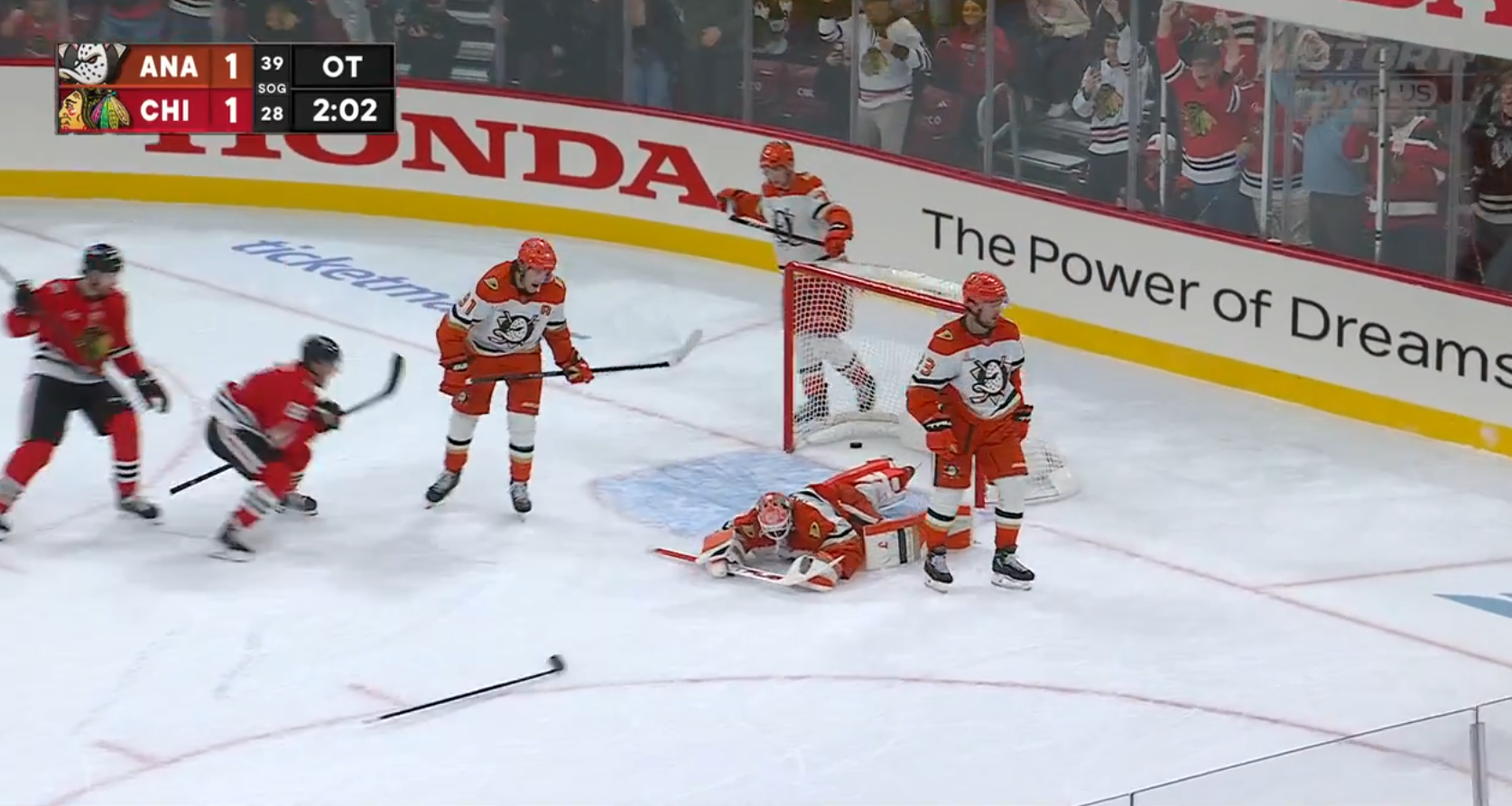Game Notes: Ducks Show Promise and Growing Pains in Loss to Chicago
Here are my notes from a Ducks overtime loss to the Blackhawks:
Mason McTavish is Worth the Money
Mason McTavish (who by the way, isn’t on the top power play unit for some reason) ripped home a perfect shot to tie up the game in the dying seconds. The combination of perfect power, placement, and the extreme angle from which he had to take it from was just so impressive.
McTavish has been really solid to start the season. He’s been the stabilizing force on a line with Cutter Gauthier and Beckett Sennecke, who both are adjusting to life in the NHL. Gauthier still is learning the intricacies of when to shoot or pass, or take on a defender one on one. It’s led to some turnovers. Sennecke is a rookie, of course.
McTavish’s awareness on the ice, both with and without the puck, has made things look a lot smoother than they might otherwise be. There’s a reason he got a $42 million contract.
Leo Carlsson and Managing Speed
Leo Carlsson was a machine in this one. He was relentlessly attacking off the rush, taking on defenders one on one (or one on two, or three…) before finding his linemates. He drew a penalty as a result, and stickhandled his way through a crowd to find himself all alone in front, nearly tucking a goal home.
However, Carlsson’s one-track approach is a double edged sword, and we saw that in overtime. Early on his final shift where the Hawks scored, he tried to rush the puck up the ice with no support, attacking two Blackhawks defenders. There simply was no play to be made there.
Later in the shift, the Ducks have a two on one chance, which turns into a Hawks’ rush the other way. Carlsson, having already expended so much energy, barely gets back into his zone in time to be a factor defensively, and the Hawks ultimately score.
This isn’t to pin the goal against on him at all. There were other factors that led to the goal. But as Carlsson progresses, he will learn to manage the game, and manage his own game better. Sometimes, it’s quite all right to not try to do it all yourself. A valuable lesson.
Radko Gudas is Back?
After a very difficult year in the 2024-25 season, Gudas has been solid to start. He played a quietly effective game against Chicago, closing off attackers and moving pucks efficiently.
His night was very reminiscent of his first year in Anaheim, where he wasn’t going out of his way to make the big hit, but instead playing an efficient style of hockey. A big boost to Anaheim’s playoff hopes, should that continue.
Ian Moore Deserves More Minutes
Moore was plugged into a strange situation, as Joel Quenneville elected to go with 7 defensemen and 11 forwards, despite having 12 healthy forwards on hand. However, he took it in stride and ended up being one of the Ducks better players on the night.
Moore took some shifts at forward as a result of the logjam of defenseman. I wonder how much of that is Quenneville wanting to keep him engaged in the game, while also not gassing out his forwards. It’s an interesting approach, and I’d bet there’s more to it than meets the eye.
The Harvard alum was his usual effective self: moving pucks quickly on the breakout, using his skating to create advantages offensively, and deploying a smart stick to close gaps. He was on the ice in the final minutes, showing the coaching staff took notice of his game as well.
Other notes
Pavel Mintyukov continues to quietly build on his positive performances. He was very involved offensively tonight, often finding himself below the opposing goal line. He’s making the most of the ice time he’s being given.
Sam Colangelo drew into the lineup, and was his usual respectable self. A fourth line of Colangelo-Poehling-Nesterenko could be interesting.
Olen Zellweger continues to be dynamic offensively. He nearly scored in overtime.
Are the Ducks good or not? We won’t know for a good while. Let the sample size continue to build.

